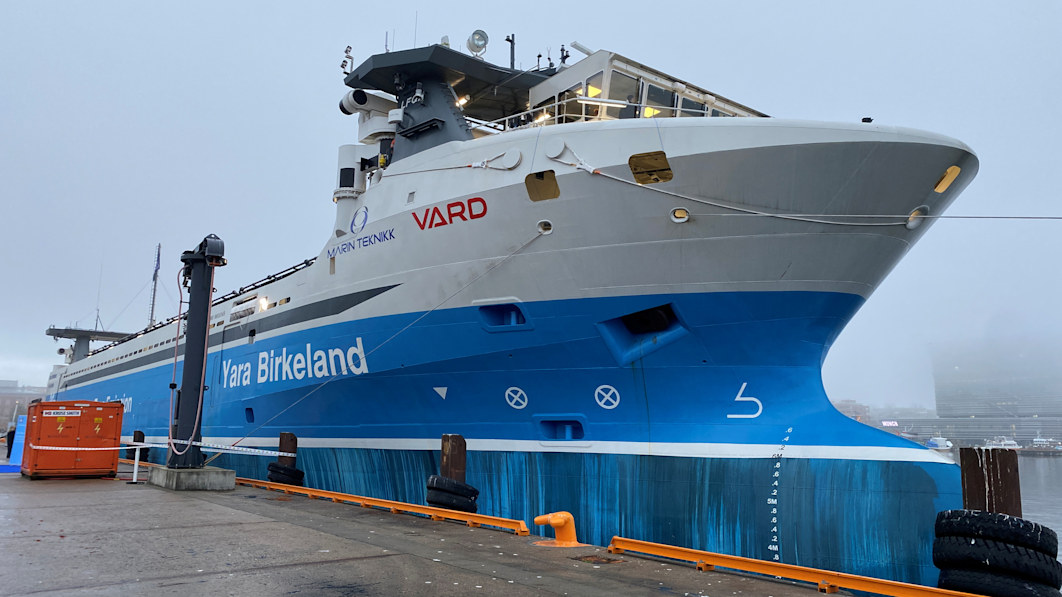OSLO, Norway — The world’s first all-electric and self-steering container ship, owned by fertilizer producer Yara, is preparing to sail along Norway’s southern coast and play a part in the country’s plans to clean up its industry.
The Yara Birkeland, an 80-meter-long (87 yards) feeder, will replace truck traffic between Yara’s plant in Porsgrunn in southern Norway and the export port at Brevik, approximately 14 km (8.7 miles) by road. , from next year.
It will reduce 1,000 tons of CO2 emissions per year, equivalent to 40,000 diesel journeys on the road, and is expected to be fully autonomous in two years.
For Yara, this means reducing CO2 emissions at its Porsgrunn plant, one of Norway’s largest CO2 sources, said Chief Executive Svein Tore Holsether.
“Now we’ve made this technological leap to show that it’s possible, and I think there are so many routes in the world where it’s possible to deploy the same type of ship,” he told Reuters.
Kongsberg, built by Vard Norway, provided key technology, including the sensors and integration needed for remote and autonomous operations.
“This isn’t about replacing the sailors, it’s about replacing the truck drivers,” said Yara’s Jostein Braaten, project manager for the ship, at the ship’s bridge, which will be removed when the ship is running on full automation.
The ship will load and unload its cargo, recharge its batteries and also navigate without human intervention.
Sensors can quickly detect and understand objects like kayaks in the water, allowing the ship to decide what action to take to avoid hitting anything, Braaten said.
The system should be an improvement over a manual system, he added.
“We’ve taken away the human element, which is also the cause of many of the accidents we see today,” Braaten said.
The vessel, which will initially make two trips per week, has the capacity to carry 120 20-foot containers of fertilizer at a time.
It’s powered by batteries from Switzerland’s Leclanche, which pack 7 megawatt hours into eight battery chambers, the equivalent of 100 Tesla cars, Braaten said.
Related video:
